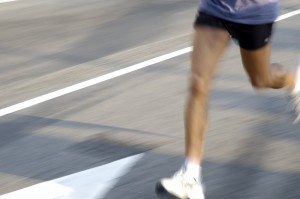Authors advise caution over possible effects physical activity may have on memory and attention of those with condition.
Physical activity may improve memory, attention and general cognitive function among the growing number of people with dementia, according to new research in a leading medical journal.
The findings, published on Wednesday in the Cochrane Library, are among the first to suggest that regular exercise – which previous studies have said can help prevent dementia – can also bring some relief from its symptoms.
“There is promising evidence that exercise programmes can have a significant impact in improving ability to perform activities of daily living (ADLs) and possibly in improving cognition in people with dementia”, say the authors, although they advise caution in interpreting them.
The study, led by Dorothy Forbes, an associate professor of nursing at the University of Alberta in Canada, is a meta-analysis of 16 previous studies. It updates a similar exercise Cochrane undertook in 2008 that examined four pieces of research and produced no concrete findings.
The new study, though, has led the researchers to conclude: “It is thought that exercise might be useful in treating dementia or slowing its progression, though improvements in the ability to carry out everyday tasks and positive effects on mental processes such as memory and attention.
“Exercise may, therefore, indirectly benefit family caregivers and the healthcare system by reducing some of the burden of dementia.”
Dr Doug Brown, director of research and development at the Alzheimer’s Society, said: “Even in the later stages of dementia people can benefit from different types of activities such as gardening or singing or even seated exercises, when they’re no longer able to stand.”
Ministers from G8 countries are preparing to attend the organisation’s summit on dementia in London next Wednesday.
This article first appeared on The Guardian on 4 December, 2013.























